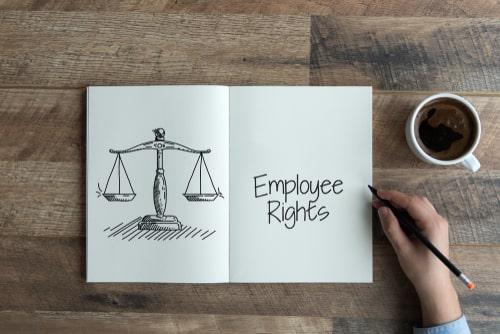Wheaton |
St. Charles |
Sycamore
 630-665-7300
630-665-7300
Sexual Harassment and Discrimination: What Are My Rights as an Employee?
 Sexual harassment in the workplace has become a hot button issue in recent years. After celebrities such as Harvey Weinstein and Matt Lauer were publicly scrutinized for accusations of workplace sexual harassment, more and more people started taking notice of the issue.
Sexual harassment in the workplace has become a hot button issue in recent years. After celebrities such as Harvey Weinstein and Matt Lauer were publicly scrutinized for accusations of workplace sexual harassment, more and more people started taking notice of the issue.
As an employee, it is crucial that you understand your rights under Illinois and federal law. Many workers unknowingly allow discriminatory and offensive behavior to go unchecked because they are not aware of the rights and the legal safeguards designed to protect them. This allows perpetrators to continue their unlawful behavior and avoid being held accountable for their misconduct. Unfortunately, discriminatory practices tend to proliferate if nothing is done to stop it, which is why it is so important for employees to speak up.
Employees Have a Right to Be Free from Discrimination and Harassment
As an employee, you have the right to be free from discrimination on the basis of sex, race, color, sexual orientation, gender identity, disability, or national origin. Under the Illinois Human Rights Act, employers are required to provide a workplace free from any form of unlawful discrimination. This includes sexual harassment.
Illinois law defines sexual harassment as “unwelcome conduct of a sexual nature” which creates an intimidating or hostile environment for employees. Sexual innuendos, cruel remarks, teasing, jokes, and nonconsensual touching, if severe or pervasive, may constitute sexual harassment. “Quid pro quo” arrangements were an employer or authority figure attempts to gain sexual or romantic benefits in exchange for work-related benefits are also considered sexual harassment.
Employees Have the Right to Be Free from Retaliation
Another crucial issue with regard to sexual harassment claims is the threat of retaliation. Many people who are harassed or discriminated against at work do not report it because they are worried they will be fired or otherwise punished for speaking up. Fortunately, the law specifically protects employees against retaliation. If you file a sexual harassment complaint and face retaliation, you have a right to file a claim for compensation.
Retaliation can take many forms, but common examples include:
- Having your work hours cut
- Being assigned unfavorable work duties or work hours
- Being given an unwarranted poor performance evaluation
- Being mocked or belittled by employers or staff
- Being demoted or terminated
Employers Have a Legal Obligation to Take Sexual Harassment Seriously
Employers are not only ethically bound to prevent sexual harassment, they are also legally required to protect employees from sexual harassment and other forms of unlawful discrimination. When an employee makes a sexual harassment complaint, the employer should take immediate action to address the situation. If an employer ignores sexual harassment or allows sexual harassment to continue after an employee makes a report, the employer may be held legally responsible through a sexual harassment claim.
Contact our DuPage County Divorce Lawyer
If you experienced sexual harassment at work or you were retaliated against for reporting sexual harassment, contact MKFM Law for legal advice. Our skilled Wheaton sexual harassment and discrimination lawyers can protect your rights and help you take the next steps. Call 630-665-7300 for a consultation.
Source:
https://www.dol.gov/sites/


 Read More
Read More





